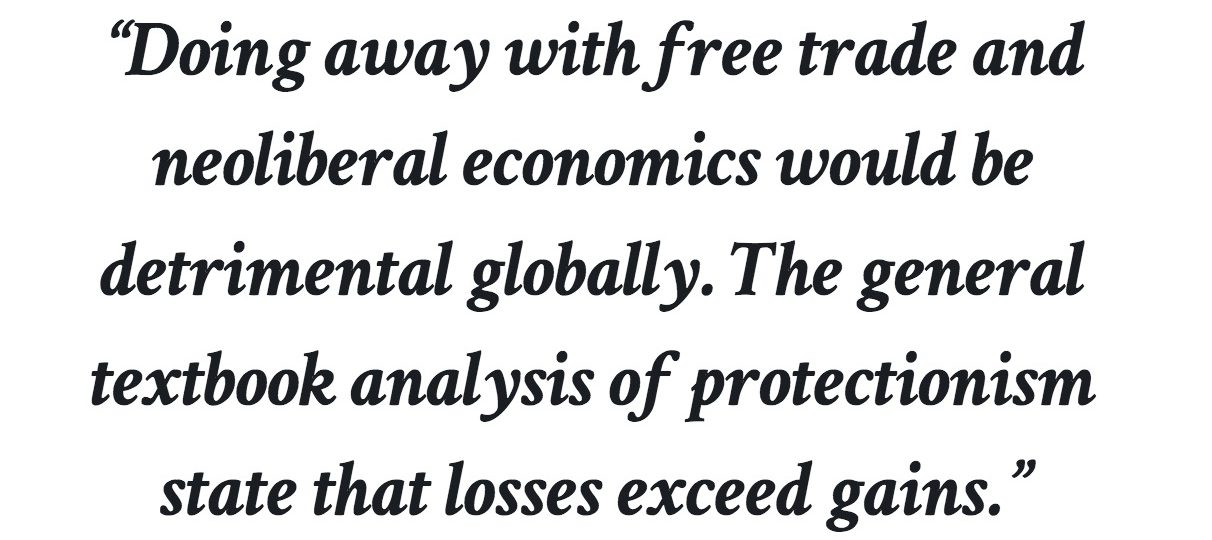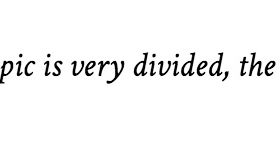The world has recently witnessed a rise in protectionist trends, fuelled by the rise of populist regimes in many countries. In the era of Donald Trump and Matteo Salvini, free trade, a product of the liberal world order has been under constant fire.
The United States, a veteran proponent of free trade, has now become a vocal critic of it under the Trump Administration. President Trump has criticised the North American Free Trade Agreement (NAFTA) and has been arguing that America can no longer be treaded in an ‘unfair’ manner thereby reaffirming his ‘American First’ policy. Italy has recently refused to ratify The Comprehensive Economic and Trade Agreement (CETA), a trade agreement between Canada and the European Union, citing the lack of protection to Italian businesses. The populist regimes have called for more protection at the borders and have repeatedly stressed on ‘job protection’ for the masses. In short, they are heading towards protectionism.
However, Africa and South America seem to have reaffirmed their commitment to free trade. The African Continental Free Trade Area (AfCFTA) and the EU-Mercosur Trade Deal are two historic trade deals which are expected to transform the respective regions.
The AfCFTA aims to establish an African common market for goods and services. The deal is set to eliminate custom duties for 90% of the goods and is expected to boost intra-Africa trade. The deal was signed by member countries in 2018 and was ratified in 2019. The free trade area is the advent of a formalised African economy which is estimated to boost its consumer base by creating a market of 1.2 billion people. The trade area is set to transform the African continent which has long been suffering from economic deficiencies. It is said to increase the infrastructure facilities in the continent and increase transparency by reducing the existing regulations and red tape.
The EU-Mercosur Trade Deal is another free trade treaty which is expected to boost trade between South America and Europe. Established in 1991, the Mercosur is a South-American trade bloc consisting of Argentina, Brazil, Paraguay and Uruguay as its members. In June this year, after two decades of negotiations Mercosur and the EU reached a ‘historic’ agreement on the free trade treaty. The treaty is said to eliminate tariffs for approximately 90% of the goods on both sides. The European Union is estimated to make huge gains with tariff reductions on certain important goods such as cars, chemicals, wine, machinery and textiles. Mercosur aims to increase its exports to Europe as the deal eliminates tariffs on 93% of goods exported to the EU and grants preferential trade treatment for the remaining 7%.
“The rise of populist regimes and the protectionist trend can be attributed to the ill-effects of the liberal world order and in this case the demerits of free trade.“
Free trade has long dominated the economic narrative globally. Mainly, because of the advantages it provides and the growing interconnectedness of the world. Free Trade increases consumption and provides specialization to the consumers due to the nature of the comparative advantage present in its system. In the free trade system, a country has a comparative advantage if it efficiently produces a good as compared to other countries. The labour cost, environmental regulations and the availability of raw materials are some factors that determine a country’s advantage. It also helps to avoid domestic monopolies, thereby ensuring the production of efficient goods.
I would sound as an ignorant capitalist (which I don’t think I am) had I not mentioned the de-merits of free trade. The rise of populist regimes and the protectionist trend can be attributed to the ill-effects of the liberal world order and in this case the demerits of free trade. It is essentially a fact that free trade does not protect domestic jobs and ignores the environment. The EU-Mercosur trade deal has become controversial after it was alleged by environmental groups, that it does not provide safeguards to protect the environment- that is, the Amazon. European farmers have also alleged that the deal could heavily impact the domestic agriculture sector with an increase in agriculture exports from South America. Democracy also suffers with the presence of crony capitalism in its system. The increasing business-political nexus in countries ensure that the de-merits of the system aren’t acted upon.
But the world today is highly integrated and interdependent. Doing away with free trade and neoliberal economics would be detrimental globally. The general textbook analysis of protectionism state that losses exceed gains. The present trend is to term such arguments as ‘liberal propaganda’ but the fact remains that the global economy is suffering due to the current US-China Trade War, a product of protectionism.
What is needed currently is to reform the free trade system. Stronger reform would ensure growth and stability in the international markets.





While I am not an economics student and by no means an expert in free trade and neoliberal economics, there are many arguments I find problematic in your article.
1. First and foremost, encouraging such economic measures turns a blind eye towards the climate crisis (of which you have conveniently made a side note, despite it being the most significant consequence). It is not simply ‘alleged’ that the Mercosur deal does not safeguard the environment: the governments who’ve ratified it are both actively and passively disregarding environmental degradation, specifically concerning deforestation. See also mass soy production on illegal lands, mining and conflict with local peoples, among other problems.
2. The argument that free trade is mutually exclusive with populist regimes is simply inaccurate: see Bolsonaro.
3. Neoliberalism ravaged Latin American countries in the 80s – structural adjustment programs may have improved countries’ economic state, but made basic needs such as water a luxury. In addition to this, the privatisation of such resources facilitated the breakdown of indigenous traditions (mainly through their connection to the Earth and its resources) in order to concentrate power.
4. This being said, the implementation of neoliberalism is too often facilitated by foreign interests: see the US in Latin America (past; many governments are unstable as a result) and China in Africa (now).
5. You point out: “the labour cost, environmental regulations, and availability of raw materials are some factors that determine a country’s advantage”, as well as how democracy is weakened when controlled by a business-political system. It is safe to say that where there is a lack of democracy, transparency, and accountability, both labourers and the environment will be exploited for further profit which benefits only those in control. It is in their interest to maintain a corrupt system which conveniently avoids further regulations to maintain a high yet low-cost yield.
6. When judging such complex systems, we must ask ourselves: Who benefits most from trade deals with resource rich countries: internationally as well as domestically? Individuals in high income countries and upper classes in most countries are living well at others’ expense and can far too easily live in wilful ignorance. Where does the money go in countries where a corrupt system facilitates success in free trade agreements? Exporting countries often have gaping inequalities and elaborate methods of deviation; see for example Odebrecht and the Lava Jato case (Operation Car Wash). What is the price of profit? Think of the impact of such trade systems on societal, individual, environmental levels and whether trickle-down economics are fair, efficient, and equitable.
While I can acknowledge that doing away with the system of free trade is not a viable solution, we cannot disregard negative criticisms in light of a ‘gains exceed losses’ economic interpretation. Ideally, tackling corruption would facilitate the implementation of social and environmental regulations to encourage wellbeing as opposed to simply money-making. It is time we move past a profit-driven standpoint and address its catastrophic consequences on humanity and the planet to avoid further exacerbation.
Well said, I completely agree with your points. I really could have not gone into the merits and demerits of free trade considering the word limit. But the overall argument being made here is, yes there are grave challenges and dis-advantages of free trade. As you said , environmental degradation, corruption, social inequality, threat to indigenous groups etc. But at the end of the day , profit is an essential factor in todays world. We have seen how the left has failed to create progress. I am to the left when it comes to the society and politics. But in economics, the leftist touch does not simply work. It is human nature to want profit. Having said that, I am not going to say so lets just sit back and make money. All I am saying is while neoliberal economics and free trade is the way forward, we must attend to the problems. We must reform the neo-liberal system and free trade in particular, thereby ensuring development to all.